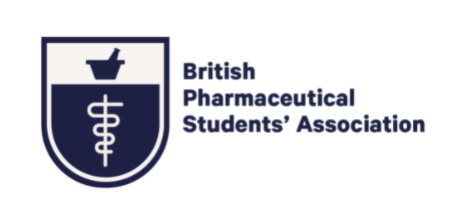5 Year Pharmacy Degrees? A closer look at the Nottingham 5 Year course
I have always enjoyed education, training and development and I felt that I had something to offer, experience to bring on the next generation, so was very fortunate to secure a role here at Nottingham to take on and lead the development of the five year MPharm course. The five year Nottingham degree was designed to work closely with stakeholders and providers to develop integrated training and development, with local hospitals and community providers, so that’s what I’ve been doing for the last 5 years.
The GPhC challenged us, and placement providers and tutors, to think about how we would assess students on placement to ensure that they did get the best out of that learning, and in 2017 we were fully accredited. I had transferred a small cohort of only 10 students in 2015 from the traditional program to the 5 year programme. I told them they were our vanguard, of course they felt like they were a little bit of an ‘experiment’ but they did extremely well. Those 10 students graduated in 2017 and we had a bit of a celebration because we demonstrated that you really could run a programme like this by engaging stakeholders and being involved in the quality assurance of pre-registration placements and so forth.
The students go out for six months at the beginning of fourth year and six months at the end of fifth year. This not only helped those students drive up their performance, in terms of application of their knowledge and skills, but we could also demonstrate that they really did begin to embody the behaviours and the attitudes that go with being a professional. We have all recognised that professionalism is very difficult to teach. To some extent, depending on where you’ve come from and the opportunities you’ve had in life, we do recognise that the professional socialisation process of experiential learning, and under a good quality tutor, really helps people to develop that. In my PhD, I’m looking at whether professionalism moves us from competence (the minimum standards that meet regulation) to what I describe as ‘performance’, or ‘excellence’, or ‘mastery’ if you think of it from a Faculty perspective.
We graduated our second cohort of 19 students last summer, and what mattered to me is not only these students becoming fine young professionals; that is very rewarding, but it’s about preparing them not just with a qualification, which the MPharm does, but preparing them for practice. It’s all about preparing them for registration as a pharmacist; in the 5 year MPharm course they’ve sat their registration exam before they’ve even completed their degree.
I think the proposed GPhC 5 year standards are good, the idea that we integrate education, training and development makes it, in one way much better for students, but of course the standards are highly aspirational. Without adequate funding and without thinking about how we’re going to make that engagement work, and how we’re going to collaborate with multiple stakeholders and get universities to work effectively like that, is going to be very difficult.
I can run a small programme at Nottingham, and it’s not a cheap course to run from a logistics and staffing perspective. It is certainly expensive, none more so than for the students, and I feel relatively uncomfortable about that. I also feel uncomfortable about the fact that my 5 year students, a largely international cohort, are having an experience that I think many home students would benefit from. That feels wrong to me, that there are a small group of students who are enjoying this kind of opportunity that perhaps isn’t available to the wider cohort. So I welcome the proposed standards but they are aspirational, and we are going to have to think very carefully about how we fund and resource them.
There is money in the system, it’s a matter of Universities, NHS commissioners and service providers working together, along with students who recognise that they make a contribution to their education and development, to see if there’s a way of funding this, to try and make it cost neutral for students as far as we can. I do think there is enough money to do that, I think it’s a question of whether there’s the will to reallocate that, or redistribute, or re-imagine that to do something different.
